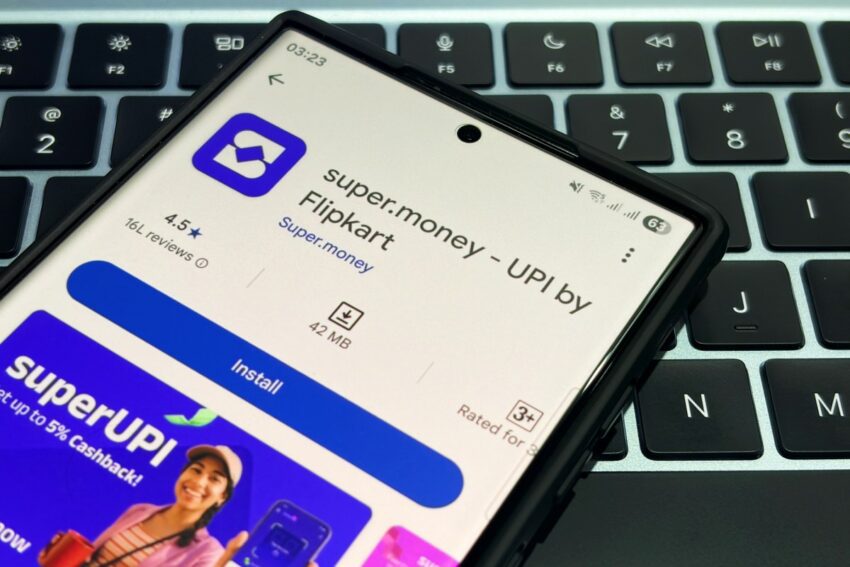
flipkart s super money teams up with Flipkart’s Super.money has announced a strategic partnership with Kotak811 to enhance the landscape of digital payments in India through the introduction of fixed-deposit-backed credit cards.
flipkart s super money teams up with
Overview of the Partnership
The collaboration between Flipkart’s Super.money and Kotak811 is set to revolutionize the way consumers engage with digital payments in India. The primary objective of this partnership is to issue approximately 2 million fixed-deposit-backed credit cards within the next 12 months. This initiative not only aims to provide consumers with easier access to credit but also to leverage the growing popularity of Unified Payments Interface (UPI) transactions in the country.
Understanding UPI and Its Impact
The Unified Payments Interface (UPI) has transformed the digital payment ecosystem in India since its inception. Launched in 2016, UPI allows users to link multiple bank accounts to a single mobile application, facilitating seamless money transfers and payments. The platform has gained immense traction, with millions of users adopting it for everyday transactions, from paying bills to making purchases.
In the fiscal year 2022-2023, UPI transactions reached a staggering 74 billion, reflecting a growth of over 100% from the previous year. This rapid adoption underscores the increasing reliance on digital payment methods among Indian consumers, driven by the convenience and security that UPI offers.
Benefits of Fixed-Deposit-Backed Credit Cards
The introduction of fixed-deposit-backed credit cards represents a significant innovation in the credit landscape. Unlike traditional credit cards, which rely on credit scores and income levels, these cards are backed by a fixed deposit held in the user’s account. This model offers several advantages:
- Accessibility: Individuals with limited credit history or lower income levels can access credit more easily, as the fixed deposit acts as collateral.
- Lower Interest Rates: Since the credit is secured by a fixed deposit, the interest rates on these cards are typically lower than those of unsecured credit cards.
- Encouragement to Save: Users are incentivized to save money, as the fixed deposit can earn interest while also providing access to credit.
- Financial Inclusion: This initiative aims to bring more people into the formal financial system, promoting financial literacy and responsible borrowing.
Stakeholder Reactions
The announcement has garnered positive reactions from various stakeholders in the financial sector. Executives from both Flipkart and Kotak811 expressed enthusiasm about the partnership and its potential to reshape the credit landscape in India.
“This collaboration is a significant step towards democratizing access to credit for millions of Indians,” said a spokesperson from Flipkart. “By leveraging our technology and Kotak811’s banking expertise, we aim to create a product that is not only accessible but also beneficial for consumers.”
Kotak811’s representatives echoed similar sentiments, emphasizing the importance of innovation in the banking sector. “Our partnership with Flipkart’s Super.money aligns with our commitment to providing inclusive financial solutions. We believe this product will empower consumers and enhance their financial well-being,” they stated.
Market Context and Implications
The Indian digital payments market is witnessing unprecedented growth, driven by a surge in smartphone penetration, internet accessibility, and a young, tech-savvy population. According to a report by the National Payments Corporation of India (NPCI), UPI transactions are expected to reach 100 billion by 2025, further solidifying its position as the preferred payment method in the country.
In this context, the partnership between Flipkart and Kotak811 is timely and strategic. The introduction of fixed-deposit-backed credit cards can potentially capture a significant share of the burgeoning digital payments market. As more consumers transition to digital platforms for their financial needs, the demand for innovative credit solutions will continue to rise.
Challenges Ahead
Despite the promising outlook, the partnership faces several challenges. One of the primary concerns is the need for consumer education regarding fixed-deposit-backed credit cards. Many potential users may be unfamiliar with this concept, necessitating effective marketing and educational campaigns to raise awareness.
Additionally, regulatory hurdles could pose a challenge. The Reserve Bank of India (RBI) has stringent guidelines governing credit and banking operations. Ensuring compliance with these regulations while innovating will be crucial for the success of this initiative.
Future Prospects
The collaboration between Flipkart’s Super.money and Kotak811 marks a significant milestone in the evolution of digital payments in India. As the partnership progresses, it will be essential to monitor its impact on consumer behavior and the overall credit landscape.
Looking ahead, the potential for expansion is substantial. If successful, this model could pave the way for similar partnerships between fintech companies and traditional banks, fostering further innovation in the financial sector. Moreover, as more consumers become accustomed to digital payments, the demand for diverse credit products will likely increase, prompting financial institutions to adapt and innovate.
Conclusion
The partnership between Flipkart’s Super.money and Kotak811 represents a forward-thinking approach to addressing the evolving needs of Indian consumers in the digital payment space. By introducing fixed-deposit-backed credit cards, the initiative aims to enhance financial inclusion, promote responsible borrowing, and ultimately contribute to the growth of the digital economy in India.
As the partnership unfolds, it will be crucial to observe its implementation and the subsequent impact on both consumers and the broader financial ecosystem. The success of this initiative could serve as a blueprint for future collaborations aimed at enhancing access to credit and promoting financial literacy in India.
Source: Original report
Was this helpful?
Last Modified: October 29, 2025 at 1:36 pm
2 views















